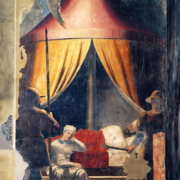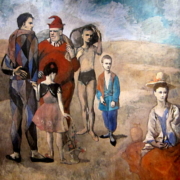The fate of transference: infinite transformation of original fantasies
Abstract
Understanding new forms of psychic suffering in our society, especially in the border-line states, is much more relevant if we are able to consider their conduct as being an occurrence of the primal fantasies pertaining to two orders : that of the ritual and that of the myth. Very often, the antisocial behaviour of this type of personality is misunderstood because it is not considered for what it is. It is an expression of primal fantasies, dreams and nightmares whom, when transferred in the social realm, are transfigured into rituals or into private myths. I will attempt to outline this constant transformational form, which operates in dreams, in groups, in myths but also in rituals. Since the publication of the groupal psychic apparatus according to R. Kaës, we can consider as a fact that primal fantasies Read more


